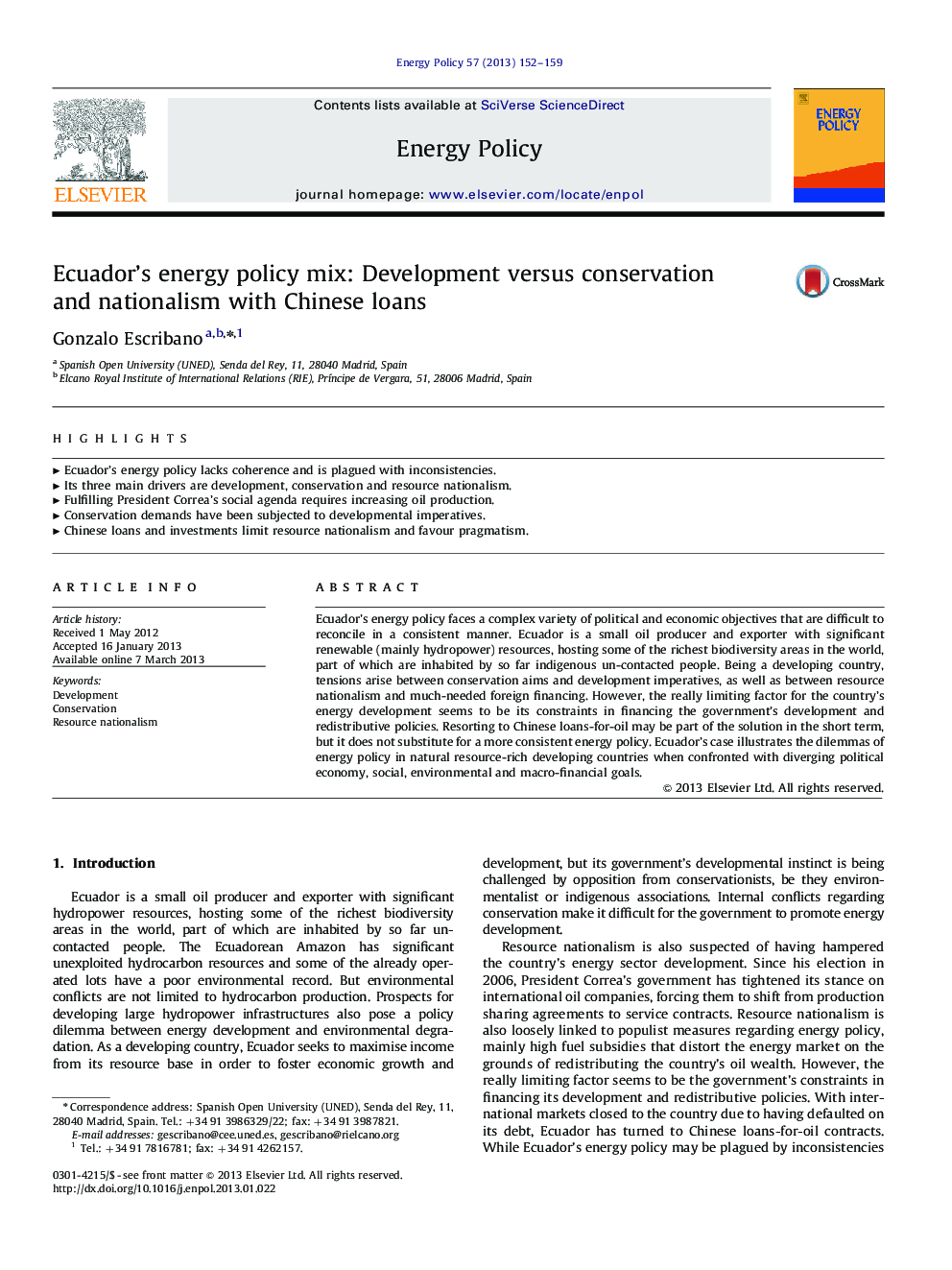| Article ID | Journal | Published Year | Pages | File Type |
|---|---|---|---|---|
| 992960 | Energy Policy | 2013 | 8 Pages |
Ecuador's energy policy faces a complex variety of political and economic objectives that are difficult to reconcile in a consistent manner. Ecuador is a small oil producer and exporter with significant renewable (mainly hydropower) resources, hosting some of the richest biodiversity areas in the world, part of which are inhabited by so far indigenous un-contacted people. Being a developing country, tensions arise between conservation aims and development imperatives, as well as between resource nationalism and much-needed foreign financing. However, the really limiting factor for the country's energy development seems to be its constraints in financing the government's development and redistributive policies. Resorting to Chinese loans-for-oil may be part of the solution in the short term, but it does not substitute for a more consistent energy policy. Ecuador's case illustrates the dilemmas of energy policy in natural resource-rich developing countries when confronted with diverging political economy, social, environmental and macro-financial goals.
► Ecuador's energy policy lacks coherence and is plagued with inconsistencies. ► Its three main drivers are development, conservation and resource nationalism. ► Fulfilling President Correa's social agenda requires increasing oil production. ► Conservation demands have been subjected to developmental imperatives. ► Chinese loans and investments limit resource nationalism and favour pragmatism.
